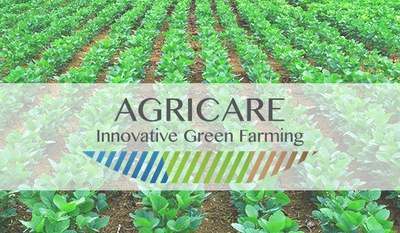Agriculture: ENEA Project on innovative cultivation techniques reducing CO2 emissions
18/2/2016
Introducing green techniques in agriculture to protect soil, cut energy consumption and greenhouse gas emissions produced by farms it’s the objective set by AGRICARE (Introducing innovative precision farming techniques in AGRIculture to decrease CARbon Emissions), the European project ENEA is coordinating and implementing together with the regional agricultural holding Veneto Agricultura, the international manufacturer of agriculture equipment Maschio Gaspardo and the University of Padua.
 Particularly, the project deals with the innovative techniques of precision agriculture and conservative agriculture practices. Precision agriculture is a modern farming practice based on observing and measuring crop variability using high technology and remote sensing data, allowing to specifically target areas of need within the fields to refine irrigation schedules and apply the right amount of nutrients and chemicals. Conservative practices are based on strip cropping and no-till farming.
Particularly, the project deals with the innovative techniques of precision agriculture and conservative agriculture practices. Precision agriculture is a modern farming practice based on observing and measuring crop variability using high technology and remote sensing data, allowing to specifically target areas of need within the fields to refine irrigation schedules and apply the right amount of nutrients and chemicals. Conservative practices are based on strip cropping and no-till farming.
“ENEA- the researcher Nicola Colonna explains- is actively engaged in practices of communication and spreading of results, particularly in the Italian agricultural production regions considered most appropriate for precision agriculture. Precision agriculture is a technique on the rise, aiming at tailoring inputs to best match soil requirements and its chemical, physical and biological characteristics, based on the possibility to mount on agricultural machinery guidance systems using georeferenced maps, to develop site - specific farming operations”
The validity and sustainability of these techniques are being tested on experimental rotational crops and cultivation techniques of corn, soy, rape and soft wheat at the pilot agricultural holding Vallevecchia di Veneto Agricoltura in Caorle (Venice). Its results will be assessed later for a potential replicability in other Italian and European farming systems.
The project envisages an assessment of the degree of knowledge of farmers and the implementation of advisory and training activities coupled with new IT tools, with the development of a user-friendly and open- access software, to enable farmers to calculate their benefits - in terms of energy consumption, budget and emissions reduction - deriving from the introduction of green farming techniques.
Greenhouse gas emissions reduction in agriculture is a major concern, since this sector is one of the most seriously affected by climate change , especially in developing countries. At the same time, it also accounts for a large percentage of the greenhouse gas emissions released into the atmosphere. According to the IPCC* estimates, the share of greenhouse gas emissions from agriculture is increasing (accounting for about 15%), higher than that of transport and about half of that of energy production.
For more information please contact:
Nicola Colonna, ENEA Casaccia Research Center nicola.colonna@enea.it
http://www.lifeagricare.eu/it/progetto
